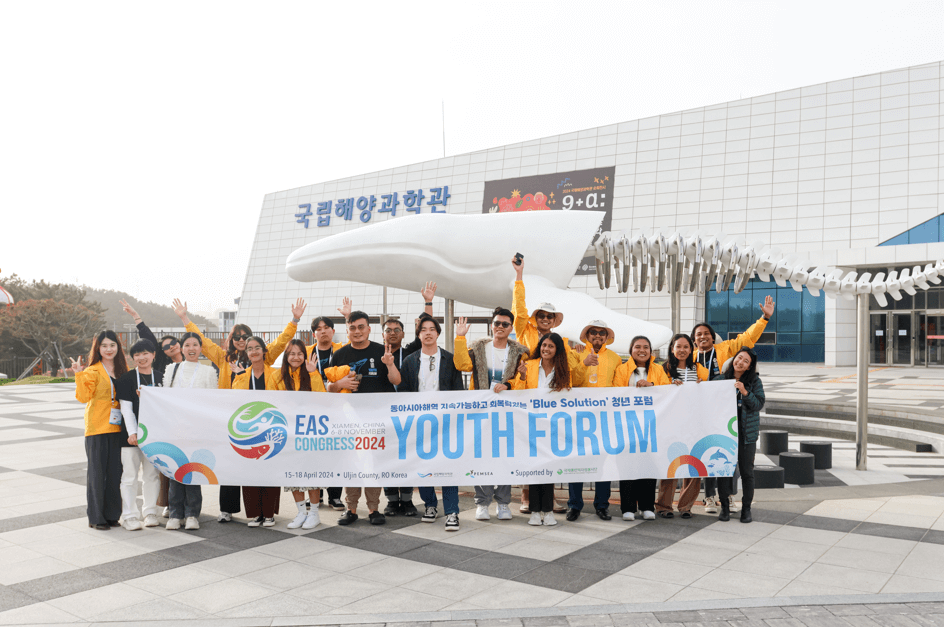Balancing Economic Development and Coastal Resources Management
Monday, 17 November 2008

Sihanoukville, Cambodia — In 2005, the Department of Tourism had high hopes for Sihanoukville becoming a prime tourist destination. "We need to get the upper and middle class crowd to visit more often because they're the ones who can pay more for the services. Right now, there are a lot of tourists coming in, but only a few are staying in high-end resorts," expressed then DOT Deputy Director Tang Socheat Kresna. Sihanoukville's only 5-star hotel at that time, the Sokha Beach Resort, was only sparsely occupied. Three years later, investors are scrambling to have a piece of Sihanoukville. With construction all over the municipality - from five-star hotels, flats, ports, bridges - that hope for the municipality may soon become a reality. Land prices are soaring, investments and tourists are pouring in and, construction and more construction is seen everywhere. While the municipal government is cautious about these developments, it cannot be denied that such economic expansion brings hope to many people. For many, more investors mean more jobs and more income.
Sihanoukville's "growth" is founded on the use of its natural resource base, but with the influx of tourists and more capital from foreign corporations, can Sihanoukville's natural resource base handle this environmental stress? Are resources enough to fuel the growing population in the municipality?Sihanoukville's newly appointed Governor, Sbong Sarath, answered these questions while addressing local officials and stakeholders during the Inception Workshop on Integrated Coastal Management in Sihanoukville."Coastal resources in Sihanoukville provide the foundation for socioeconomic and environmental activities. Benefits from fishing, tourism industry and port services, provide for local people's livelihood. However, the Municipality has to face several difficulties in relation to preserving and managing the coastal zone environment owing to population growth, demands for environmental services, industry development, increased fishing efforts and the growth of coastal tourism. There is imbalance between economic development and natural resource management," Governor Sbong Sarath admitted during the Workshop on 8 September.The one-day Inception Workshop was participated in by 60 commune officials, representatives from local government departments and other stakeholders. The culmination of the workshop was marked by the signing of a Memorandum of Agreement (MOA) between the Municipality of Sihanoukville and PEMSEA on the scaling up of the integrated coastal management (ICM) programme in Sihanoukville for the period 2008-2011. Under the MOA, the Municipality will focus on strengthening marine and coastal governance through such initiatives as operationalization of its coastal use zoning scheme, implementation of strategic actions focusing on habitat protection, restoration and management, water use supply and management, food security and livelihood management, and pollution reduction and waste management in Stung Hav, Prey Nup and Mittapheap Districts, and application of an environmental users fee. PEMSEA's role will be to provide technical guidance and assistance to the Municipal Government in the development of a State of the Coasts reporting system, setting up a sustainable ICM governance system and strengthening local capacity in ICM implementation and scaling-up actions.Meeting the Challenges Ahead: A 3-year Commitment to ICMThe implementation of the ICM Scaling up programme in Sihanoukville will be a challenging task for the Municipality as it will need to move fast enough to ensure that economic expansion will not lead to detrimental environmental impacts. To do this, a combination of a broader institutional capacity development coupled with practical projects that would have an immediate impact on people's lives will be the main strategies for the next three years.The institutionalization of coastal management is hoped to be accomplished through the establishment of the Sihanoukville Coastal Management Committee (SCMC). The SCMC, which will be a permanent interagency and multisectoral body, will be the venue for discussion, policy direction and monitoring of ICM activities. Additional membership will be sought from nongovernmental organizations, the private sector and community-based organizations to ensure proper representation of other sectors. The existing Project Management Office and the Technical Working Group will serve as a secretariat for the SCMC.The Municipal Government will come up with a Deka (provincial law) to support the establishment of the SCMC. The establishment of the SCMC is also in anticipation of the pending national Organic Law on Decentralization and Deconcentration in Cambodia.Coastal Use ZoningWith the booming construction, the Coastal Use Zoning plan needs to be legislated, enforced and made known among stakeholders. In 2005, the National Coastal Steering Committee (NCSC) adopted the coastal use zoning plan in Sihanoukville, but there was no corresponding sub-decree or law that would back up its implementation. In the next three years, the municipal government will seek support form the NCSC to develop and submit a sub-decree on CUZ."We need an Anukret (sub-decree) for the CUZ and to publish what we have done on zoning so that the stakeholders know that the zones are for specific use only," commented one participant.The development of the sub-decree will be matched with corresponding capacity development among local authorities, coupled with an effective information campaign to instill vigilance among stakeholders and implementers.Financing for Coastal ManagementOne of critical concerns in implementing coastal management initiatives in Sihanoukville is resource mobilization to implement ICM. From the growing number of tourists comes an opportunity to generate environmental fees. Within the next three years, a series of consultations will be conducted to set up an environmental user fee that would finance environmental infrastructure and services, as well as ensure effective collection and management of the fund.At the heart of the ICM implementation in Sihanoukville is strengthening individual and institutional capacity to fully implement ICM activities through the learning-by-doing approach. Specific training activities will be done on-site in support of implementation of strategic action programs such as beach water quality monitoring, coastal use zoning and environmental user fee.



